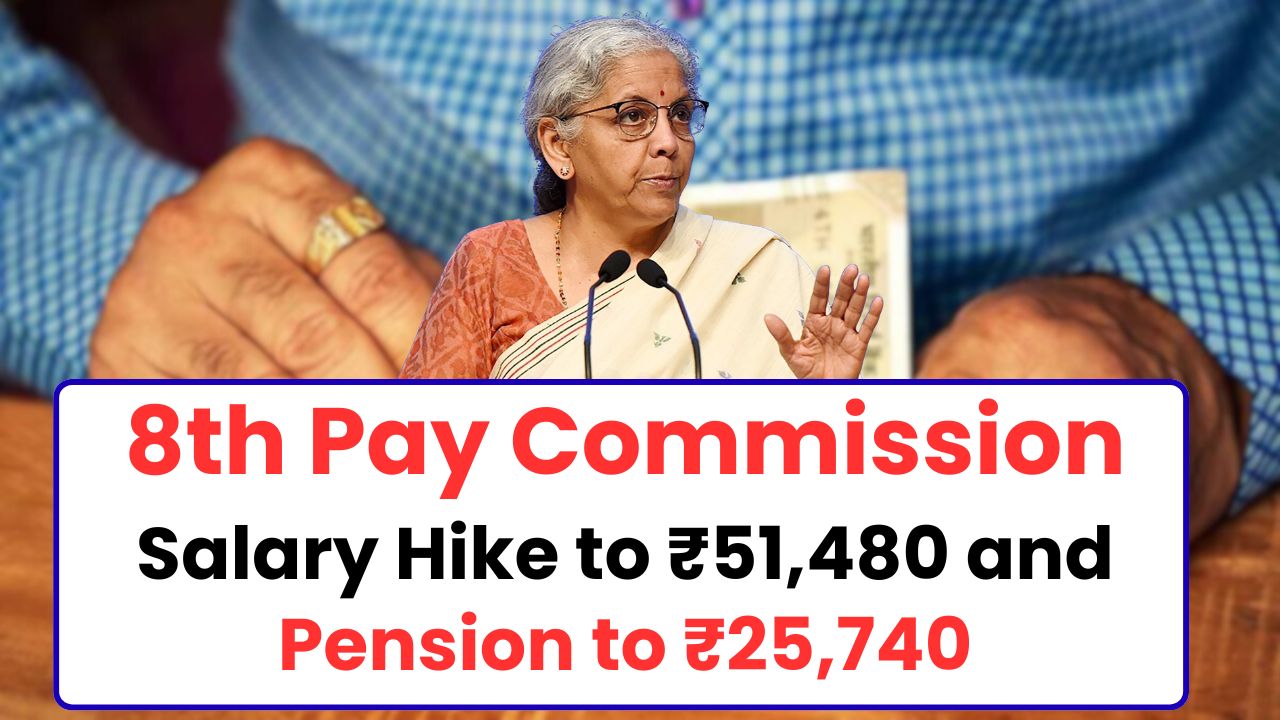Title (Heading): The Long-Awaited 8th Pay Commission Finally Gets Its Approval, Offering New Hope and Relief to Millions of Central Government Employees and Pensioners Across India
It expectedly places a minimum salary, suggested at ₹51,480, with a pension base salary fixed at ₹25,740. Against this backdrop, this revision is aimed at tackling inflation and mounting living expenses, coupled with the escalating demand for fair remuneration in the public sector.
What is 8th Pay Commission?
Pay Commissions are bodies set up by the Government of India every decade to go into the salary structures of Central Government employees and pensioners and give their recommendations. The 8th Pay Commission is thus the latest in the series, which demanded improving financial security of the employees keeping economic balance in view.
Minimum Basic Salary
The 8th Pay Commission has projected a minimum basic salary of ₹51,480 for central government employees. This differential increase over the earlier Commission’s recommendations should primarily benefit the low-grade employees, who, in turn, should be able to improve their living standards and spend a little more.
Pension Revision
For pensioners, the basic pension is fixed at ₹25,740. Such an increase indicates that consideration of the basic needs of the retired employees, whose life includes hospitalization, increased medical expenses, and inflation, was deeply concerned. Under this new pension set-up, the elderly beneficiaries get better economic benefits.
Impact on Central Government Employees
The Government approved the 8th Pay Commission, which means millions of government employees see an increase in their take-home pay, by way of basic pay. Allowances like HRA and DA may also be adjusted, further boosting morale and productivity throughout departments.
Relief to Pensioners
By virtue of the pension hike, retired employees stand to gain substantially. With inflation still eating into the prices of essentials, revised rates serve to cushion the old from the actions and absorption of inflation, who largely survive on monthly pensions.
Economic Implications
While the revision, on the other hand, benefits the employees and the pensioners, it would increase government expenditure considerably. Economists initiate the opinion that the additional expenditure may stimulate demand in the economy, while at the same time putting pressure on fiscal management. Balancing both aspects would, therefore, have to be the cardinal issue in the years to come.
Future Outlook
The coming of the 8th Pay Commission is not about salary increases alone, but about cementing the position of government employees and pensioners so that rising costs do not end up squeezing them dry. Implementation of the recommendations shall probably begin in stages, with further clarity coming from the Finance Ministry in the next sessions of the budget.
Conclusion
The 8th Commission appropriation stands as a historic watershed in improving the living conditions of central government employees and pensioners. Standing at a projected level of salary of ₹51,480 and pension of ₹25,740, this change will impart a lasting imprint on India’s financial milieu by bettering welfare and growth.




